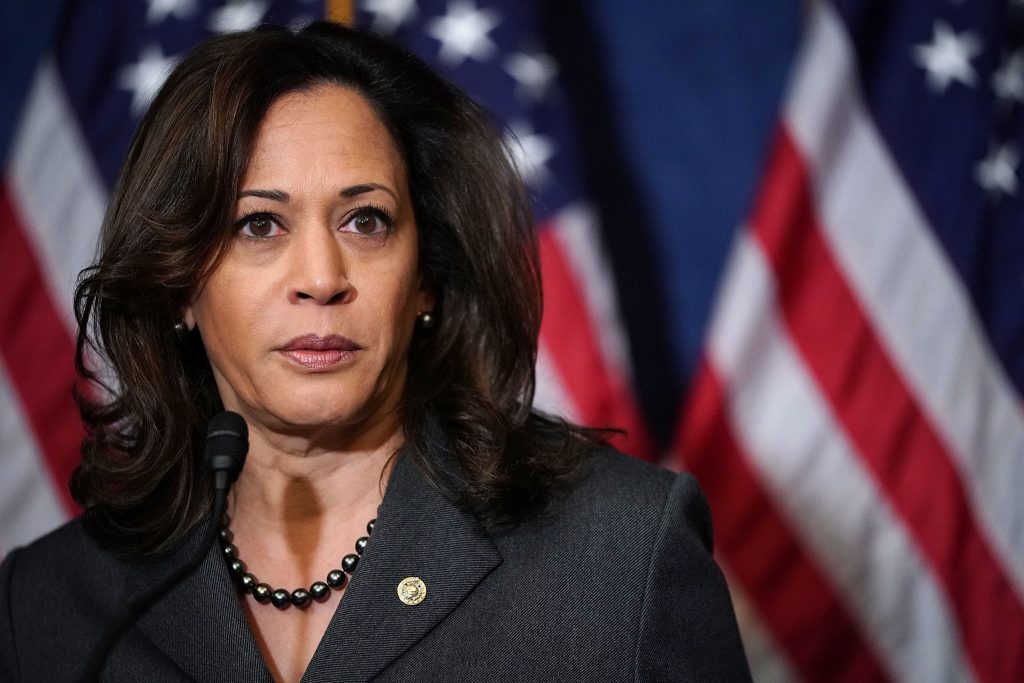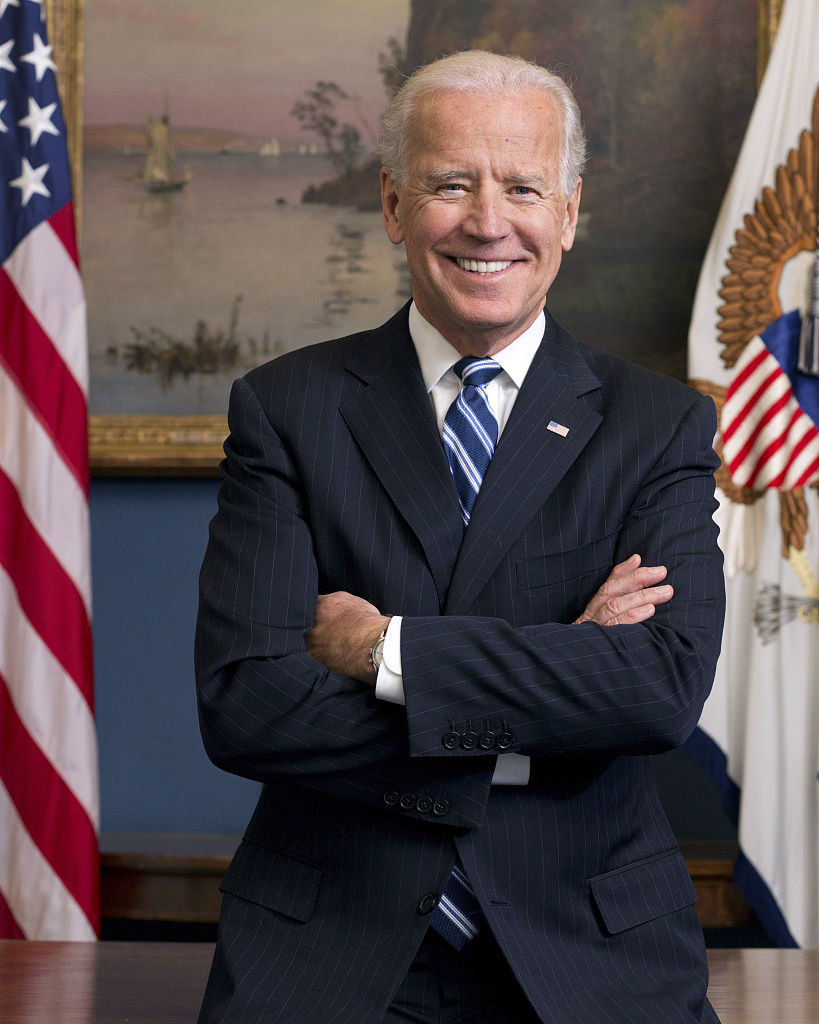In an unprecedented move, President Joe Biden announced on July 21 that he is ending his bid for reelection. The president has endorsed his former running mate and current Vice President Kamala Harris for the nomination, but much is still up in the air ahead of the Democratic National Convention next month.
Since entering the Senate more than 50 years ago, Biden’s political and personal careers have been defined by his perseverance.
“I thought that his mentality was, ‘Okay. I could get through this just like I got through everything else in the last 50 years,’” says Miles Coleman, associate editor of Sabato’s Crystal Ball at the University of Virginia. “He was obviously talked out of that.”
While doubts about Biden’s candidacy have plagued the entirety of his 2024 bid for reelection, it was the June 27 debate against Donald Trump that likely shifted the Democratic Party’s calculations, according to Coleman.
“You could very plausibly argue that that is the most consequential presidential debate in our history,” he says. “The coalition of voters he had, I would argue, wasn’t as much of a pro-Biden coalition as it was anti-Trump. I think that was part of it. He was thinking, ‘Okay, well, am I the one who can best beat Trump?’ … I think one of the big favors he did was right off the bat he endorsed Harris.”
A recent article from Sabato’s Crystal Ball—published on July 18, three days before Biden’s announcement—details the president’s declining polling numbers and increasingly “grim electoral future for Democrats.”
In the article, Coleman and Crystal Ball managing editor Kyle Kondik assert that increasingly shaky polling around Biden, especially in crucial swing states Minnesota, Wisconsin, Michigan, Pennsylvania, Georgia, Nevada, and Arizona, makes the gamble of switching to Harris more attractive.
“Harris, to me, is a little untested in terms of being on the national stage and having to actually win votes,” says Coleman. “I’m really not sure if she is going to play in the Midwest, which, in my mind, that’s probably going to be the region that’s going to decide the election.”
Existing polling on Harris shows the vice president slightly outperforming Biden with Democratic core groups, specifically women and minorities. Her numbers are slightly lower with men, but the aforementioned core groups have the real potential to make or break Democrats’ bid for the presidency, according to Coleman.
While another member of the party could mount a rapid campaign against her for the position, the vast majority of the Democratic establishment has quickly gotten behind Harris.
A number of state and local Charlottesville Democrats have expressed their support for Harris and respect for Biden, including Sen. Tim Kaine, Sen. Mark Warner, Rep. Abigail Spanberger, state Sen. Creigh Deeds, and Del. Amy Laufer.
“As I have been saying for weeks, President Biden is a patriotic American who has always put the needs of our country ahead of himself. … His decision today reflects the same patriotism that George Washington and Teddy Roosevelt demonstrated when they selflessly put their country above their own political ambitions,” shared Kaine in an official statement shortly after Biden’s announcement. “I’m looking forward to working with my friend Kamala Harris and a great ticket mate to keep Virginia blue so that we can continue to build on our progress.”

With Harris now the presumptive Democratic nominee for president, the question of her running mate remains. At press time, a formal selection for the Vice President spot on the ticket has not been made, but a few names and trends have emerged.
“Something that we talk about often when it comes to picking the vice president is the idea of balance,” says Coleman. “At this point, I think it would be a big shock if [Harris] doesn’t end up picking another white male to replace Biden.”
Among the most likely contenders for the job are North Carolina Gov. Roy Cooper, Kentucky Gov. Andy Beshear, Pennsylvania Gov. Josh Shapiro, and Arizona Sen. Mark Kelly. All four are white men with good electoral track records in politically purple states.
Cooper has quickly emerged as a potential frontrunner for the VP pick, having won twice in a state that went for Trump in 2016 and 2020. The governor is also at the end of his eligibility, presently serving his second consecutive term in office, which removes pressure to keep him in his current role to oppose state-level Republican efforts.
Moving to Kentucky, Beshear stands out as a younger contender for the running mate position. The 46-year-old won his bid for reelection to the governorship last year, winning 52.5 percent of the vote against Republican challenger Daniel Cameron.
Beshear also has local ties, having earned his law degree from UVA in 2003.
In Pennsylvania, Shapiro recently came into the national spotlight in the wake of the failed assassination attempt on Donald Trump at an outdoor rally. “He won some bipartisan praise about how he handled the assassination attempt on Trump last week, at least how he set the tone for the aftermath of the assassination attempt,” says Coleman.
Republicans and Democrats praised Shapiro for his quick response, intentional and prompt release of information, conversations with state representatives, and call to the family of Corey Comperatore in the aftermath of the assassination attempt. Comperatore was killed in the shooting, sitting in the section immediately behind Trump.
Cooper, Beshear, and Shapiro have all served as state attorney general at some point in their careers, something the three share with Harris. Coleman highlighted that Democrats could potentially use a ticket with two former attorneys general on it to push back against Republican law and order appeals.
Kelly is also a potential contender for the VP spot but a less likely pick compared to the aforementioned governors. While he could help turn out voters given his popularity in his home state, Kelly is also only in his first term as a senator.
Looking more locally, Coleman says it’s unlikely either Virginia senator will be named as Harris’ running mate. “The biggest strike against Kaine (or Warner) is that Youngkin would appoint a replacement,” he says. “A Virginia pick is just a lot less attractive to Democrats this time around compared to 2016.”
Regardless of who ends up as Harris’ running mate, Coleman speculates that the election is still going to be close. “To me at least, in terms of the electoral map, the Democrats are going to have to win those three midwestern states (Minnesota, Michigan, Wisconsin).”
Though switching to Harris might be a gamble this late in the election cycle, the move and its timing have several potential upsides for Democrats.
“For much of this year, the Trump campaign had been preparing to run against Biden, and now that’s kind of shuffled up,” says Coleman. “Had Biden announced this time last year that he wasn’t running, then this whole last year the Republicans would have turned their fire on Harris. I’m sure they are going to still very much be going after her now, but they only have four months.”
“One of the biggest criticisms of Biden, not just from Republicans, but from Democrats as well, is his age,” says Coleman. “Now the oldest person to ever run in a presidential general election is going to be Donald Trump because he’s older right now than Biden was in 2020.”
Trump’s recently announced running mate J.D. Vance was also selected with a Biden ticket in mind. Rather than choosing a more moderate VP candidate or someone with different potential selling points, Trump “doubled down and went for Vance.”
Looking ahead, the next month will be especially crucial for Democrats. A divided Democratic Party come August would spell disaster, says Coleman, but that seems increasingly unlikely. “At least theoretically, [Harris’] biggest contenders for the nomination would have been people like Gavin Newsom and Gretchen Whitmer; they’ve kind of ruled that out,” he says.
“In terms of getting names on ballots … the point of no [return] is going to be more like late August, early September,” says Coleman. “That’s when the first few states start to print their ballots. There are some states, like Virginia, that give people 40 plus days to go vote early.”
Early voting for the November general election starts on September 20, 2024.













